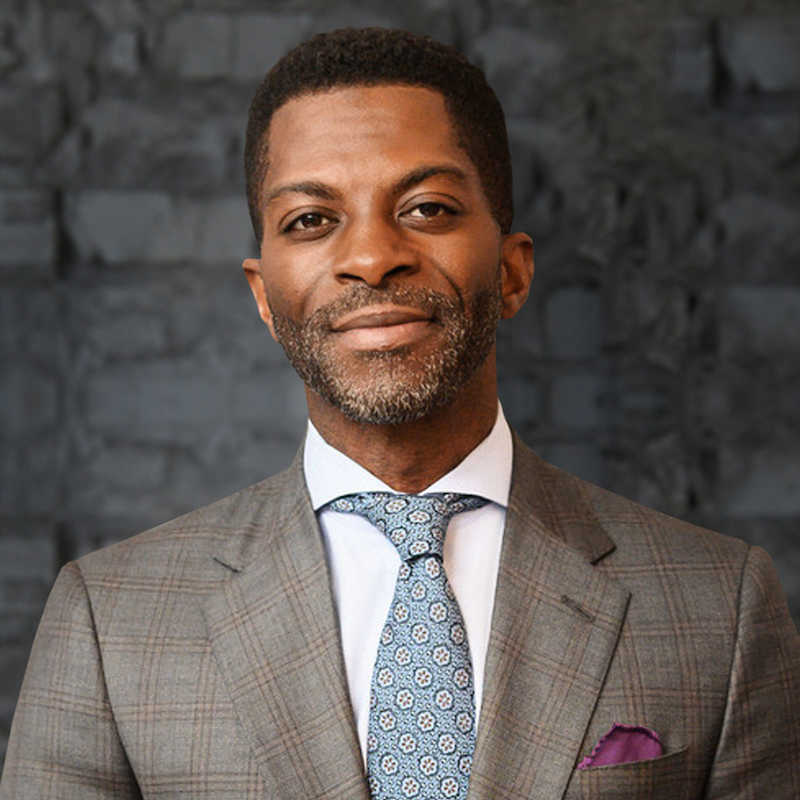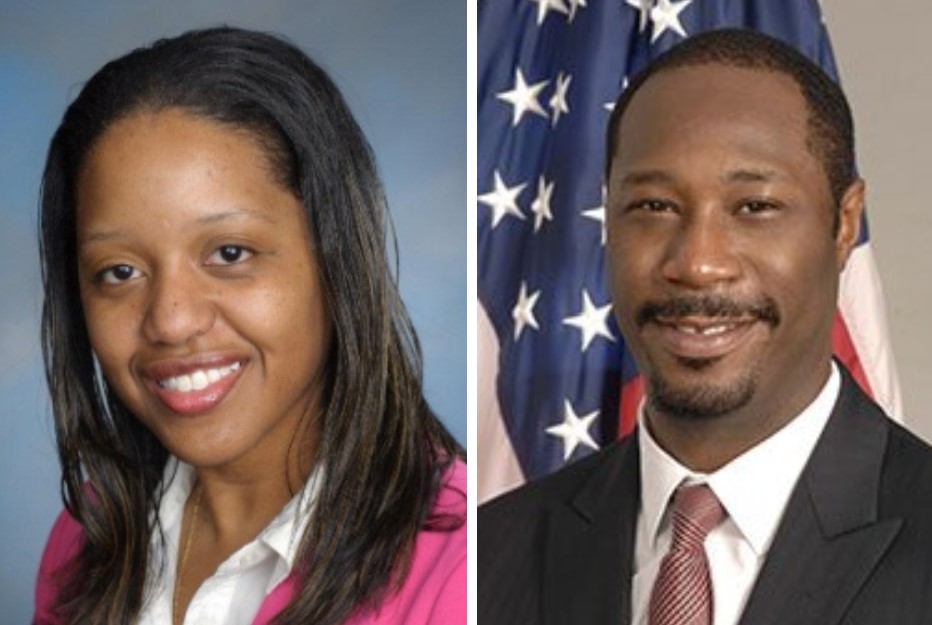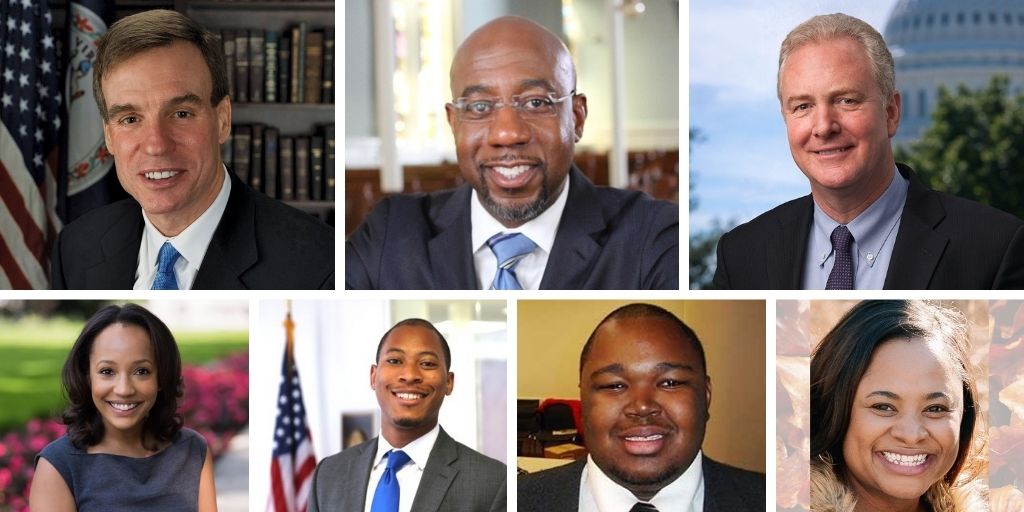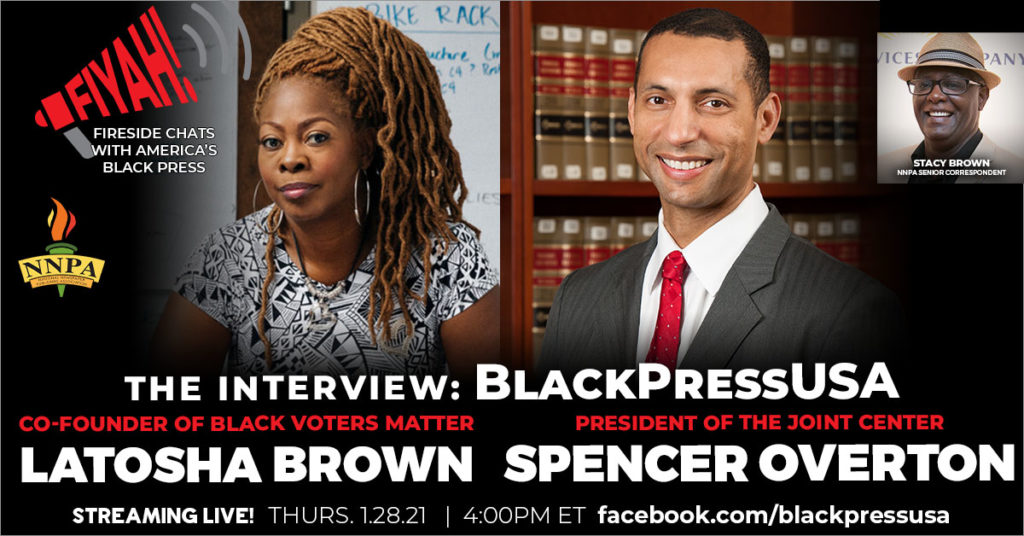COVID-19

Biden Signs New Housing & Private Prison Racial Equity Orders: Jan. 27 Joint Center Roundup
President Biden Signs New Racial Equity Orders

Biden signs housing and private prison racial equity orders: After President Biden signed executive orders on Day 1 of his Administration to launch a whole-of-government initiative to advance racial equity, this past Tuesday he signed new racial equity orders. The new orders include eliminating the Department of Justice’s use of privately operated criminal detention facilities and a memorandum directing the Department of Housing and Urban Development to “take actions that undo historic patterns of segregation and other types of discrimination and that afford access to long-denied opportunities.” Brookings (via NPR) and Urban Institute produced analyses of the housing executive order.
While civil rights groups have commended President Biden, they also observe that more work still needs to be done. (See additional statements of NAACP LDF, Lawyers’ Committee for Civil Rights Under Law, and Leadership Conference on Civil and Human Rights).
In a press briefing Domestic Policy Advisor Susan Rice, who received the Joint Center’s highest award in 2013, said that she has the support of “every White House office and every agency in this work” to “hold the federal government accountable for advancing equity for families across America.”
The Hill

Small business relief: Biden’s relief plan for small businesses takes shape, including a new $15 billion grant program and parlaying $35 billion in government assistance into $175 billion in business lending and investment. The administration also signals its intent to focus on Black and Latina/o small businesses, including by providing more relief through Community Development Financial Institutions (CDFIs).
Advancing equity: The NAACP proposes policy recommendations ranging from creating a Cabinet-level position on racial justice to enacting economic empowerment policies such as canceling student debt and increasing funding for minority-led and minority-serving CDFIs.
No Black women in House Democrats’ leadership: Politico reports that “Black women in the House haven’t held elected positions in leadership in more than four decades.”
Appointments

A first at Defense: Retired General Lloyd Austin became the first African American to serve as Secretary of Defense and is among the first of President Biden’s appointments to be confirmed by the Senate. The Joint Center and many others submitted Lloyd Austin’s name to serve as Defense Secretary.

Biden appoints Janelle Jones as Chief Economist at the Department of Labor: Janelle previously served as the Managing Director for Policy and Research at the Groundwork Collaborative, and her past work has focused on racial inequality, unemployment, job quality, and unions.

Biden appoints Angela Hanks as the Counselor to the Secretary at the Department of Labor: Angela previously served as the Deputy Executive Director at the Groundwork Collaborative, held roles at the Center for Law and Social Policy (CLASP) and the Center for American Progress (CAP), and served as a counsel on Congressman Elijah E. Cummings’ (D-MD) legislative staff.

Biden appoints Olugbenga Ajilore as the Senior Adviser in the U.S. Department of Agriculture: Ajilore previously served as a senior economist at the Center for American Progress, the President of the National Economic Association, and was an Associate Professor of Economics at the University of Toledo. His past work has focused on racial bias, policing, and the labor market including this analysis on the need to invest in rural communities in the wake of the COVID-19 pandemic.

Anthony Coley to lead the Office of Public Affairs at the Department of Justice: The Morehouse graduate previously served in the Obama Administration as the Deputy Assistant Secretary for Public Affairs at the Department of Treasury. The position at DOJ is significant because the Office of Public Affairs has traditionally been a leadership component of the agency.

Biden appoints Natalie Evans Harris as Senior Advisor to the Commerce Secretary and Antwaun Griffin as Senior Advisor to the Commerce Secretary on COVID-19: Natalie is the Co-Founder and Head of Strategic Initiatives at BrightHive and previously served as a Senior Policy Advisor to the U.S. Chief Technology Officer in the Obama Administration. Antwaun previously served as a Deputy Assistant Secretary for Domestic Operations at the International Trade Administration (ITA), and is the founder of Penn & Broad Partners consulting boutique.
More on the docket: A significant number of Biden appointees remain in the confirmation pipeline, including Marcia Fudge, who would be the second Black woman to head the Department of Housing and Urban Development.
COVID-19

Stimulus update: President Biden unveiled a 200-page plan on COVID-19 response and pandemic preparedness and shared that it could be at least another two weeks before a deal is reached on the next stimulus payment. Some contested issues include whether to limit additional $1400 checks to low-income families (some have proposed not distributing checks to those earning over $75,000) and increasing the minimum wage from $7.25 per hour to $15 per hour (which the Economic Policy Institute predicts would raise incomes of nearly a third of Black workers). See also CNBC and Washington Post.
The new influencer: With 35 percent of Black adults not planning to get vaccinated for COVID-19, Black doctors have become critical influencers in overcoming vaccination resistance in Black communities.
Disparities in vaccine distribution: In several states, white people are receiving vaccinations at higher rates than Black and Latina/o Americans, according to an analysis by CNN. Although Black and Latina/o communities are dying of COVID-19 at three times the rate of their white counterparts, only 1.9 percent and 1.8 percent, respectively, are covered, compared to more than 4 percent of their white counterparts.
Jabs and hoops: The NBA is considering vaccinating players for COVID-19 to raise awareness and reduce skepticism of the vaccine in Black communities.
Not such a golden state: The COVID-19 death rate for Black residents in California is 16 percent higher than the statewide average, underscoring the deep racial and economic disparities in the state.
Hill Diversity
Report card on top staff diversity of newly-elected Members: As of January 26, the Joint Center’s report card tracking top staff hires by each new Member in the 117th Congress illustrates that 177 of 210 (or 84.3 percent) of the possible positions have already been filled. Of Members who have hired all three top spots, so far Alex Padilla (D-CA) leads in the Senate and Marilyn Strickland (D-WA) leads in the House. Those at the bottom of the lists are Senator Mark Kelly (D-AZ) and Rep. Jay Obernolte (R-CA). Of the top staff hired by new Members so far, 26.6 percent are people of color, and 6.2 percent are African American. People of color account for 40 percent of the U.S. population and African Americans account for 13.4 percent of the U.S.

Warner, Warnock, and Van Hollen show leadership on diversity: The Joint Center commended U.S. Senator Mark Warner (D-VA) (top left) for hiring Lauren Marshall (bottom left) as legislative director, U.S. Senator Raphael Warnock (top middle) for hiring Josh Delaney (bottom middle left) as legislative director and Michael J. Brewer (bottom middle right) as communications director, and U.S. Senator Chris Van Hollen (top right) for hiring Teri Weathers (bottom right) as deputy chief of staff in their respective personal offices. Following these hires, African Americans account for 2.6 percent of the approximately 340 top Senate staffers in Washington, DC who serve as chiefs of staff, legislative directors, communications directors, or full committee staff directors (African Americans account for over 13 percent of the U.S. population). Of the nine Black top staff in the U.S. Senate, two work for Republicans and seven work for Democrats.
Capitol caste system? Dr. James R. Jones, who authored the Joint Center’s 2015 report Racial Diversity Among Top Senate Staff, describes in his forthcoming book, The Last Plantation: Racism in the Halls of Congress, a “racially bifurcated” Capitol Hill, where legislators and senior staffers are predominantly white, while most non-legislative workers, including cafeteria staff, are Black and Latina/o.
Staffers of color in their own words: Several staffers of color expressed their collective outrage and disappointment by the insurrection on Capitol Hill in National Journal. Many staffers compared law enforcement’s treatment of the insurrectionists to treatment received by Black Lives Matter protesters, and are dismayed that some of their colleagues fail to address the role of race at work, even in the aftermath of the attack.

Black Voters Matter on increasing staff diversity tomorrow at 4 pm ET: The National Newspaper Publishers is hosting a livestream to discuss the issue of a lack of congressional staff diversity and explain how local advocates can make their voices heard to Congress on this issue on Thursday, January 28 at 4 pm ET. Guest speakers include Joint Center President Spencer Overton, Black Voters Matter Fund Co-Founder LaTosha Brown, and National Newspaper Publishers Association (NNPA) National Correspondent Stacy Brown. Watch the livestream on NNPA’s YouTube channel, BlackPressUSA TV.
Economic Policy
Unemployment declines slightly: Another 900,000 workers filed initial unemployment claims for the week ending January 16. An additional 424,000 workers filed for Pandemic Unemployment Assistance (PUA), bringing total new unemployment claims to 1.3 million. The pre-pandemic initial weekly claims high was 695,000 set in 1982.
Hunger disparities continue: In another sign of the disparate impact of the pandemic, 24 percent of Black adults and 21 percent of Latina/o adults in early December reported that their households did not get enough to eat. Just 10 percent of white adults reported the same.
We elected you, now hear us: Demands mount for President Biden to address the economic turmoil in Black low-income households, whose earnings are predicted to fall by at least 35 percent from 2018 levels according to the Center on Budget and Policy Priorities.
Cancel Black student debt: Experts urge President Biden to address the roughly $1.7 trillion student loan debt crisis that disproportionately affects Black students and other students of color.

Black homeownership could decline: Without policy changes, the Urban Institute warns, Black homeownership rates by 2040 could fall below those of prior generations—a projected 45 percent homeownership rate for Black Millennials versus a 51 percent rate among the Boomer generation at the same age.
Black businesses struggle: A recent poll finds that for two months running, 49 percent of minority-owned businesses were unable to pay their full rent on time. In contrast, 35 percent of women-owned businesses and 31 percent of nonminority-owned businesses could not pay rent.
A notable absence. Kamala Harris’s election draws attention to the lack of any Black female CEOs in Fortune 500 companies. (After the publication of this article, Walgreens announced Roz Brewer as the company’s new CEO, making her the only Black woman to lead a Fortune 500 company.)
Disappearing farms: Black farmers outside Tampa Bay, Florida, say institutional racism is the cause of their demise.
Future of Work
Noncredit courses stymie mobility: Without reforms, noncredit training programs will continue to exacerbate racial divides in upward mobility, argues Education Strategy Group President and CEO Matthew Gandal.
Adulting: Nonprofit groups in Louisville collaborate to create the Rites of Passage program. The program provides skills training and apprenticeships to help Black youth successfully transition to adulthood.
Paths to better jobs: To boost upward mobility, employers should look beyond a degree to skills acquired on the job, argues Jeff Murray, formerly of School Choice Ohio and the Greater Columbus Arts Council. He also notes the persistent patterns of job discrimination holding back Black and Latina/o mobility.

Automation threats and beyond: Joint Center President Spencer Overton discusses the issues facing Black Americans in the workforce with WorkingNation’s Ramona Schindelheim. “About 45% of African Americans have a high school diploma or less, and they average about $28,000 a year in terms of our earnings. What will we do about the fact that a large number of these workers could be displaced by automation? And even if they’re not displaced by automation, how can we ensure that they have a brighter future—jobs that are better paid with benefits?”
HBCUs prepare next-gen leaders: Noting that many political leaders—from Vice President Kamala Harris to mayors in Atlanta, New Orleans, and St. Paul, Minnesota—are HBCU graduates, Dillard University President Walter Kimbrough makes the case that “HBCUs are resilient institutions that play a role in building women and men who are prepared to lead the nation.”
Tech Policy
Diversify the Hill to diversify tech: The House of Representatives’ new rules package for the 117th Congress is a major step toward addressing a lack of diversity in the legislative branch, the Brookings Institution argues. Nonwhites compose only 11 percent of Senate senior staffers, 21 percent of senior staffers in the House, and about 25 percent of legislators in both chambers. The result is a lack of African American representation in congressional hearings on broadband access, privacy, and other tech issues. The omission from hearings is a reflection of the lack of diversity in the tech industry, where Black people make up only 5.7 percent of computer engineers and 4.2 percent of engineering college graduates.
Movement Building

Black Futures Lab continues to host #TalkBackTuesday, a COVID-19 digital engagement initiative.
Black Voters Matter co-founder LaTosha Brown’s interview with NBC Bay Area highlights the leadership of Black-led grassroots organizations during the presidential election, detailing volunteers’ commitment to voter awareness and registration.
Color of Change launches a photo petition campaign “demanding stimulus checks for people in prison.”
The Center for Popular Democracy issues a petition to the Biden administration urging the President to uplight Black, Brown, and Indigenous communities in his policy priorities and hold elected officials accountable for an equitable government.
The Leadership Conference on Civil and Human Rights, the Leadership Conference Education Fund, and over 50 national, state, and local organizations file a brief to the Supreme Court urging protection of Section 2 of the Voting Rights Act of 1965.
Sephora is doubling the number of Black-owned brands in its retail locations and enforcing an unconscious bias training for employees after a racial bias study revealed biased treatment towards Black workers and customers.
Events
Upcoming events include “Setting a policy agenda for Black Americans” (Brookings Institution, February 1); “How can the Biden administration improve the Medicaid program?” (Brookings Institution, February 3); “Health Care Innovators” (Politico, February 4); “Efficiency & Resilience in Economic Models: Resilience Analytics in Post-COVID Societies” (REMI, February 11); “Exploring the Economic Impact of the Education System” (REMI, February 16).
Last week, events were held by African American Policy Forum, Aspen Institute, Brookings Institution, Indiana Chamber, Knight Foundation, Los Angeles County Department of Public Health, and Politico.
Podcast
Biden’s Executive Orders (The Daily)
The Joint Center thanks the Annie E. Casey Foundation, the Boulé Foundation, the Democracy Fund, Toyota Motor North America, Inc., UPS, and the Walmart Foundation for additional support that has allowed us to do some of our COVID-19 and Black Communities work.
To receive the Joint Center’s emails, sign-up here.

